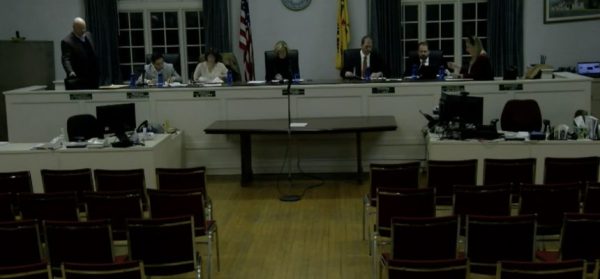Lianne La Havas’ self-titled album is an excellent dive into quarantined soul
Lianne La Havas’ self titled project, released to only moderate fanfare on July 17, is the product of five years of ruminations, recovery, and pitch-perfect recording from backup singer-turned soul artist Lianne Charlotte Barnes; the result is 52 minutes of a blissful mix of smooth, rolling guitar and voice, and contributes to Lianne’s immensely overlooked status in the music industry.
Following the release of her 2015 LP, “Blood”, La Havas took a lengthy break from recording new music to continue touring and spend time with her partner; after a difficult break-up, La Havas returned to write new music, determined to be in more creative control of her next album. As such, “Lianne La Havas” is a concept album that focuses on the cyclic stages of a love life, from the difficult decision to move on and make a change in “Bittersweet,” to the addictive infatuation of a new love in “Can’t Fight,” to a final realization of strength without one’s partner in her chronological closer, “Sour Flower.”
Instrumentally, La Havas has not been this stripped back since her commercial debut in 2012 (with one exception, to be mentioned later). However, this is not a criticism; in fact, La Havas’ limited use of instruments, whether with the euphoric guitar ballad “Green Papaya” or the spunky drum beat of “Seven Times,” brings a level of personality to her music that cannot be found in the often overproduced tracks that dominate music charts today.
The album’s simplistic-but-sublime production does lead to some occasional issues, though. In particular, the songs “Courage” and “Paper Thin” overstay their welcome, and the frequent gaps between La Havas’ admittedly wonderful singing and lyrics in these tracks become tiresome with the same simple chord progressions repeating throughout.
The few duds in “Lianne La Havas” are far outweighed by its standout hits: the incredibly catchy rhythms and chorus of “Read my Mind” are foot-tapping fun from start to finish, and the previously mentioned “Sour Flower” uses deeply personal lyrics and a powerful vocal performance from La Havas to deliver a great closer to an already great soul record.
The best song of this album, though, is La Havas’ bizarre cover of Radiohead’s “Weird Fishes”. The gradual escalation of La Havas’ vocals found on many tracks in this album is brought to the max on this triumphant rock-soul hybrid, and while it may seem out of place in the middle of the album, it’s truly hard to care when listening to the crashing climax and intense instrumental overflow of the track. The glaring intensity of the second half of “Weird Fishes,” juxtaposing with the laid-back nature of the entire rest of the album, is the truly the best kind of weird: chaotic, surprising, and unbelievably creative.
Despite a few hitches, “Lianne La Havas” is a modern classic of neo-soul, and is an excellent introduction to both La Havas’ body of work and the genre it encompasses. Through this album, it is clear what an absolute shame it is that La Havas’ music has not reached mainstream status. If you listen to this album, I’m sure you will agree.
Best Songs: “Read my Mind,” “Green Papaya,” “Weird Fishes,” “Sour Flower”
Worst Song: “Paper Thin”
Overall Grade: A
Tommy Roche is a student at Boston College. During the 2020-2021 school year, he was the Managing Editor/News of the Examiner, primarily covering general...













